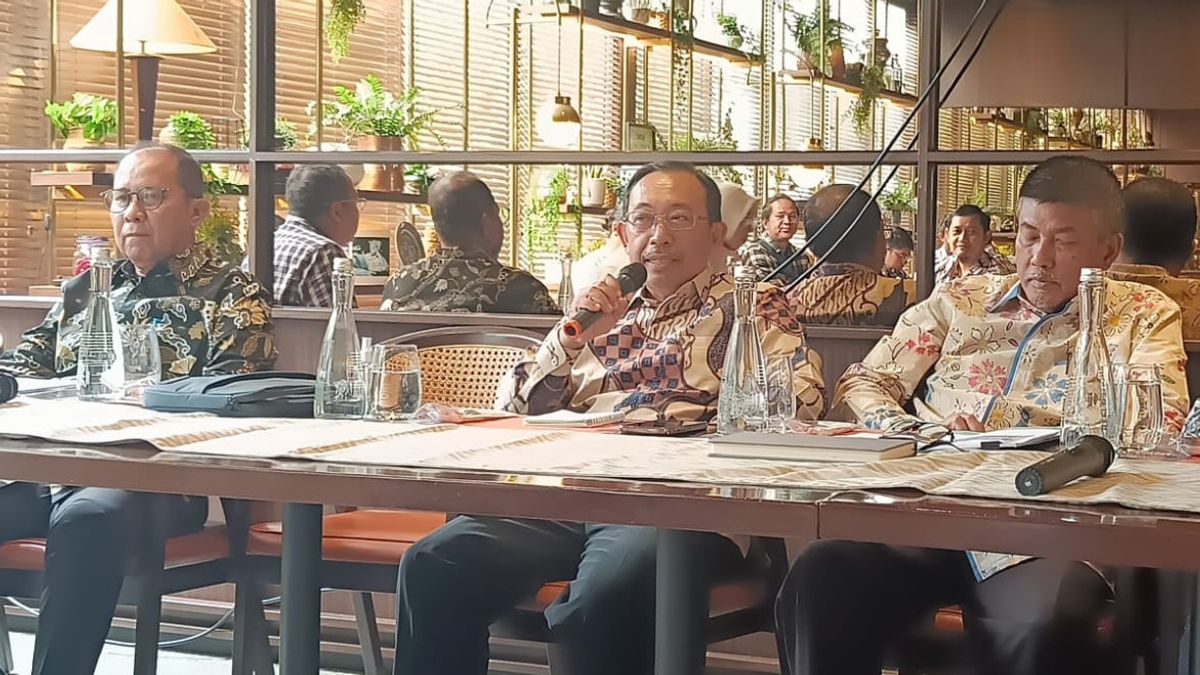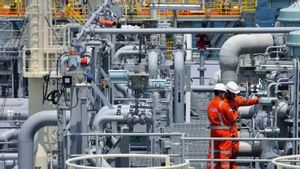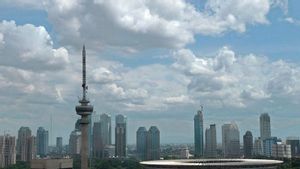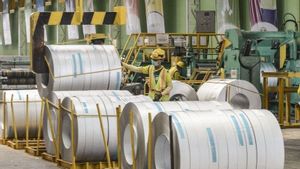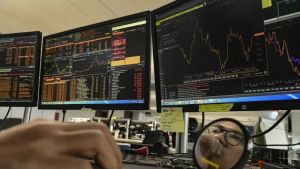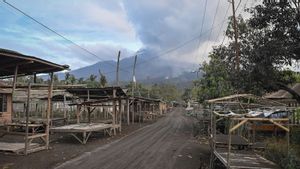JAKARTA - The Ministry of Industry (Kemenperin) responded to Faisal Basri's Senior Economist's statement that Indonesia had experienced a decline in productivity in the manufacturing industry to the economy, aka deindustrialization.
Acting Director General of Chemical, Pharmaceutical and Textile Industries (IKFT) of the Ministry of Industry, Ignatius Warsito, said this was not true and Indonesia was heading towards industrialization.
"It takes a comprehensive public research to state deindustrialization. So, the views of experts, including yesterday there were criticisms of the government from Faisal Basri, yes, we have to take a positive attitude that judging from the downstreaming that it has not been completed, there should be industrialization," Warsito said in a media briefing, Monday, August 28.
Warsito said that his party did not deny that there had been a decline in the performance of the manufacturing or processing industry. However, this is the impact of the COVID-19 pandemic which has not been completely completed.
"So, deindustrialization is just a view that we ourselves see as an introspection that the decline in industrial performance and how we achieve the targets of industrial contribution to GDP, export, investment, labor. This is an effort from time to time," he said.
Even so, Warsito assessed that the decline in the performance of the manufacturing industry, which is currently so challenging, will improve again.
This is because the government continues to work together to eliminate barriers that during COVID-19 yesterday became a barrier.
"Well, that's good communication to industry players so that we can reflect on what is the position of the current industrial capacity as an improvement in industrial performance now in the future," he said.
On the same occasion, the Director of the Semen, Ceramic, and Processing Industry of Non Metal Galian, Wiwik Pudjiastuti, said that when viewed from the non-metal industry sector, deindustrialization was not appropriate. The reason is, throughout 2022, the investment sector grew by 25 percent compared to 2021 (yoy).
"(The growth of the non-metal industry sector) is at 24.6 percent compared to 2021. That's for 2022. Furthermore, in the first semester of 2023, our new investment was recorded at IDR 7.3 trillion or if we grew the percentage by 26.2 percent," he said.
Therefore, continued Wiwik, the mention of deindustrialization is not appropriate for now.
"Of course, even if we talk about data, we also can't see that there is no deindustrialization here, especially in the metal mineral sector," he said.
As previously reported, INDEF Senior Economist Faisal Basri said the downstream nickel policy in Indonesia only benefits China. He said that the strategy carried out by Indonesia was only downstream and not industrialization.
"Unfortunately there is no industrialization strategy, what exists is a downstream policy. It's different," said Faisal at the 2023 INDEF Summit Seminar, Tuesday, August 8.
SEE ALSO:
Faisal also explained the difference between industrialization and downstreaming.
According to him, industrialization strengthens economic structure, industrial structure, and increases domestic added value.
Meanwhile, downstreaming is just changing from nickel ore to Nickel Pig Iron (NPI) or ferronickel.
The English, Chinese, Japanese, Arabic, and French versions are automatically generated by the AI. So there may still be inaccuracies in translating, please always see Indonesian as our main language. (system supported by DigitalSiber.id)
